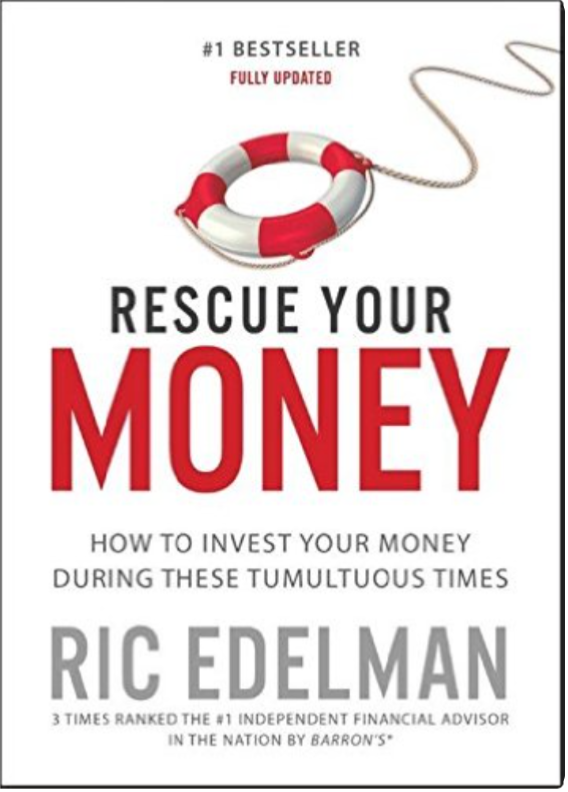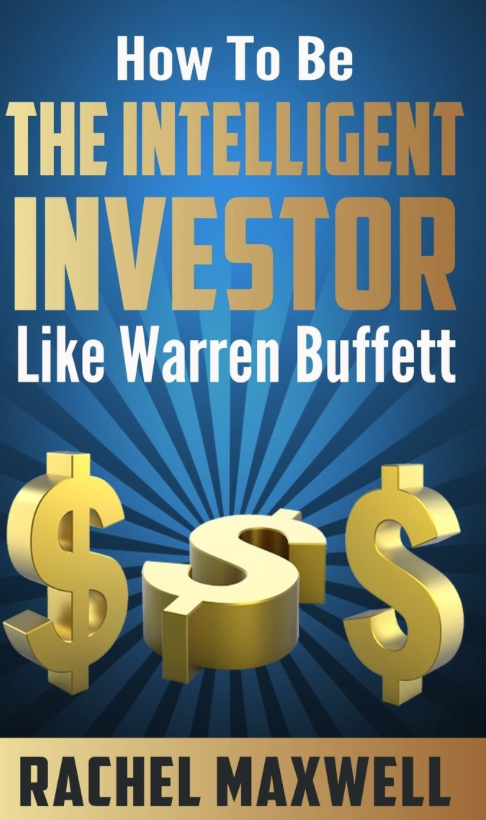Looking for more investing and stock market books to read while you are sitting on the beach during your vacation or while you are flying on a plane? Here are the latest books which cover stocks and investments, that have just been released. Interestingly, two of them are about Warren Buffett.
How To Be The Intelligent Investor Like Warren Buffett
by Rachel Maxwell
Warren Buffett is intelligent investor and he is undoubtedly the most successful stock market trader today. He is currently worth billions of dollars and his net worth is still on the rise. Many investors strive to be just like him, but sadly only a few of them are actually successful in emulating even a fraction of his success. What is the secret to Warren Buffett’s enormous wealth? Does he have superpowers that allow him to see into the future and take stock of his investments? The truth may actually shock you because it is much simpler than you think.The reason why Warren Buffett was able to amass as much money as he did is because he is a “intelligent investor” and it is recommended that you become one as well.What is a intelligent investor? Unlike other traders in the stock market, intelligent investor do not really pay too much heed in what is currently happening in the marketplace, they are much more interested in the actual value of the stocks.Value investor take into consideration the strengths and weaknesses of the companies they plan to invest in, and this requires a lot of analysis and not too much guesswork.
In this Warren Buffett book, you will learn the techniques and mindset that Warren Buffett uses whenever he goes into trades. Even though it is not really guaranteed that you will be met with the same kind of success, you are assured to get some valuable insights on how to invest your money properly and ensure that you actually make money instead of lose it.Here you will learn how to determine the true worth of a company so you will have an easier time determining whether or not it is worth it to invest your money in their stocks.Once you learn the basics of Warren Buffett’s value investing strategy, your entire view of the stock trading marketplace will change for the better.
Invest in the Best: Applying the principles of Warren Buffett for long-term investing success
by Keith Ashworth-Lord
This book concentrates on the investment style of Business Perspective Investing, as practiced by Benjamin Graham and Warren Buffett. It takes the reader through the realisation that the thought process involved when buying shares in a company is no different to buying the company in its entirety.
Adaptive Investing
by Tony Pow
To be successful in investing, we have to adapt to the current market. We evaluate our tools (screens, scoring system and our way to time the market) consistently as they change consistently. For example, some screens work better than others in different phases of a market cycle. So are the fundamental metrics. Early Recovery (a phase defined in this book) provides the best time to make easy money. Today, ignore most testing results older than 2000 as the market are quite different than today. The better test results are 6 months (or 3 months for short term) from today as they resemble the market closely. This book should make you a better investor for advance beginners and fund managers alike. This book does not make you wealthy overnight. However, I have proven step-by-step techniques to time the market, find and evaluate stocks for profits from my experiences and other retail investors (not traders) like most of you. We do not have the Holy Grail in investing but we have something close to it: Select the fundamental (technical too) metrics and the screens that have performed well lately. To illustrate, if the screen or a fundamental metric such as Price/Cash Flow works in the last few months, there is a better chance it will work this month than not.
How to Make Money with Global Macro
by Dr. Javier Gonzalez
GLOBAL MACRO is the study of the interrelations between economic policy, asset classes, politics, and war. In his idiosyncratic book, Javier Gonzalez shows how these elements weave an intricate higher-dimensional puzzle that affect our portfolios and our lives.With his innovative approach, readers are likely to interpret events around them in a new light, realizing new interconnections.
“How to Make Money with Global Macro” is Kindleberger’s “Manias, Panics, and Crashes” for speculators. (Kindleberger’s book is rather academic).
Traders and investors could find useful gaining a thorough understanding of global macro, regardless of whether their strategy is value investing, trend following, discretionary global macro, or other. Knowing how global macro might be affecting price or might affect it in the near future is crucial to making an investment decision.
The Investment Code: Ancient Jewish Wisdom for the Wise Investor
by H. W. Charles
Why are so many Jews Successful Investors that Accumulate Massive Wealth? Jews are known to be the most successful and best performing hedge-fund managers, investors, and traders in the world. Out of the best 25 money managers since the advent of American Capitalism, 17 are Jewish! Some of those in the top 25 are very famous: George Soros, Steven Cohen, James Simon, David Tepper, John Paulson, Carl Icahn, Daniel Loeb, Leon Cooperman, Israel Englander, David Einhorn, Seth Klarman, and Bruce Kovner.
Groundbreaking research has found that one of the key components to the success of the Jews is their religion—Judaism. The Tanakh, a Jewish religious text, contains codes and messages secretly hidden within its pages—decoded by the Talmud, it offers practical guidance that can be applied to your investing and business practices.
The Investing Code contains the time-tested secret wisdom found in the Tanakh that has worked to help the Jews accumulate wealth generation after generation. It can be applied by anyone today to attain wealth through wise investing practices.
Illusions of Wealth: Actively Manage Your Investments or Expect Losses in this Volatile Economy
by Doug Eberhardt
In order to keep your wealth from being an illusion, you must possess the ability to adjust your portfolio as the economic and investment climates change. Buy-and- hold strategies can work with some assets, but should not be the way forward for all your holdings. Applying the common sense of this book can grant you control of your future and your wealth.
First, it is important to have a foundational understanding of our monetary, economic, banking, and Federal Reserve systems. That is the basis on which you build your portfolio, and this book is designed to make it easy to comprehend, as technical as it may seem. You’re driving blind in the investment world without this knowledge.
From there it’s a matter of choosing the right advisor by asking the right questions—which you will find in this book. Or, you can acquire the confidence to manage your investments yourself, using the insights provided here. Many will skip over the foundational sections and go straight to the Investment section. I understand this desire to “tell me what to do” and you’ll find this section thorough in helping you maintain your wealth and profit moving forward.
What are the economic conditions on the horizon that can affect your wealth? Why do you invest the way you do? Is it because someone told you to invest that way? Who do you trust for investment advice, and why? Are they any good? How much do they make from their recommendations to you? Did they protect your portfolio during the last financial crisis? Is another financial crisis around the corner? How have you structured your portfolio differently to protect your wealth if we were to experience another economic downturn?
Inadequate education failed to teach us how to invest, so we relinquish control to advisors who may or may not have our best interests at heart. This book is written to bring you the awareness, confidence and insight necessary to conquer the future panics, crashes, and crises that will inevitably arise, and teach you how to profit whether the market is rising or falling. But most importantly, it is written to stand the test of time for generations to come, fulfilling the void left by our educational system. Isn’t it time you took control of your financial future?
Wall Street Smarts: A Guide to Finding Your Inner Investor
by Miles Goodwin
In the dizzying world of investment opportunities, finding a successful personal strategy is a daunting task. But the more you can understand yourself, the better chance you will have finding something that works for you.
In Wall Street Smarts, author Miles Goodwin presents a remarkable compilation and review of some of today’s best books for individual investors. Important works, such as The Art of Speculation by Philip Carret, Common Stocks and Uncommon Profits by Philip Fisher, The Intelligent Investor by Benjamin Graham, A Random Walk Down Wall Street by Burton G. Malkiel, and The Nature of Risk, Stock Market Survival and the Meaning of Life by Justin Mamis, provide profound wisdom and insight to enable you to learn how to successfully invest your own money. In addition, the book contains a risk tolerance quiz designed by Dr. J. E. Grable of the University of Georgia and Dr. R. H. Lytton of Virginia Tech University, Professors of Financial Planning, to help you learn how your “inner investor” shapes your investment decisions.
Divided into twelve easy-to-understand chapters, this remarkable resource compiles the best information from these books and breaks down a host of investment fundamentals and strategies, providing a comprehensive look at the various concepts you need to understand to be successful.
So if you want to learn more about investing and how to handle your money yourself, crack open this book, dive in, and discover what works best for you! If you have never discussed finances and Wall Street with your children, this book is a great starting point.
Enjoy!!!
by Ric Edelman, originally came out in 2009. It has recently been revised, updated, and re-released.




